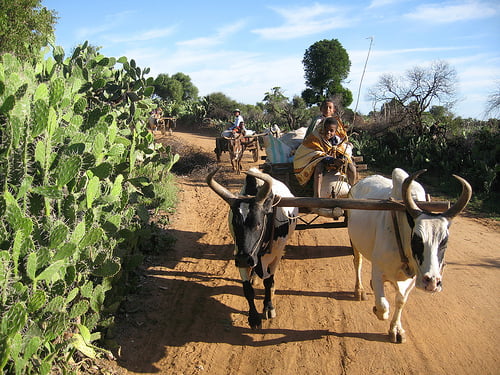

Economy
Global biodiversity conservation is ‘necessary for lasting economic development’
Preservation of the world’s biodiversity could be worth billions to the poorest regions on the planet, according to a new study. Alex Blackburne investigates the premise.
Nurturing some of the Earth’s most biodiverse areas will not only be good for the planet, but it will ultimately be lucrative for the countries that boast the most varied environment – most of which are currently amongst the world’s poor.
Preservation of the world’s biodiversity could be worth billions to the poorest regions on the planet, according to a new study. Alex Blackburne investigates the premise.
Nurturing some of the Earth’s most biodiverse areas will not only be good for the planet, but it will ultimately be lucrative for the countries that boast the most varied environment – most of which are currently amongst the world’s poor.
These are the findings of a recent study called Global Biodiversity Conservation and the Alleviation of Poverty, published in the January edition of the journal, BioScience.
“Developed and developing economies cannot continue to ask the world’s poor to shoulder the burden of protecting these globally important ecosystem services for the rest of the world’s benefit, without compensation in return”, said Will Turner, vice-president of Conservation International and lead author of the study.
“What the research clearly tells us is that conserving the world’s remaining biodiversity isn’t just a moral imperative; it is a necessary investment for lasting economic development.
“But in many places where the poor depend on these natural services, we are dangerously close to exhausting them, resulting in lasting poverty.”
The researchers “assessed a broad range of ‘ecosystem services’, the benefits people receive from natural habitats”, reads a press release on Conservation International’s website. The benefits include “crop pollination, foods, medicines, and clean, fresh water, to global benefits such as climate regulation”.
The study concluded that some half a trillion dollars could be made if the biodiverse regions of the planet were rewarded for these services.
There is already a system in place to help raise funds for these poorer nations. REDD (Reducing Emissions from Deforestation and Degradation) for example, is a United Nations-backed organisation that aims to reap money from forestry conservation.
Like most other similar schemes, though, REDD simply isn’t profitable enough.
But can this potential excess of capital provide the solution to world poverty?
“The answer is no”, Turner claimed.
“Our existing information of the value of ecosystem services is grossly insufficient, and we have much work ahead of us to quantify these services.
“But the magnitude of synergies between priority biodiversity conservation areas and poverty alleviation goals is so large, that we really must work on them together.”
Working together is a big ethic that needs to be capitalised on. You can form part of this partnership by being wise with your financial assets.
Ask your financial adviser about investing your money ethically, or fill in our form and we’ll help you along the process.
Photo: Woodlouse


 Environment12 months ago
Environment12 months agoAre Polymer Banknotes: an Eco-Friendly Trend or a Groundswell?

 Features11 months ago
Features11 months agoEco-Friendly Cryptocurrencies: Sustainable Investment Choices

 Features12 months ago
Features12 months agoEco-Friendly Crypto Traders Must Find the Right Exchange

 Energy11 months ago
Energy11 months agoThe Growing Role of Solar Panels in Ireland’s Energy Future



























